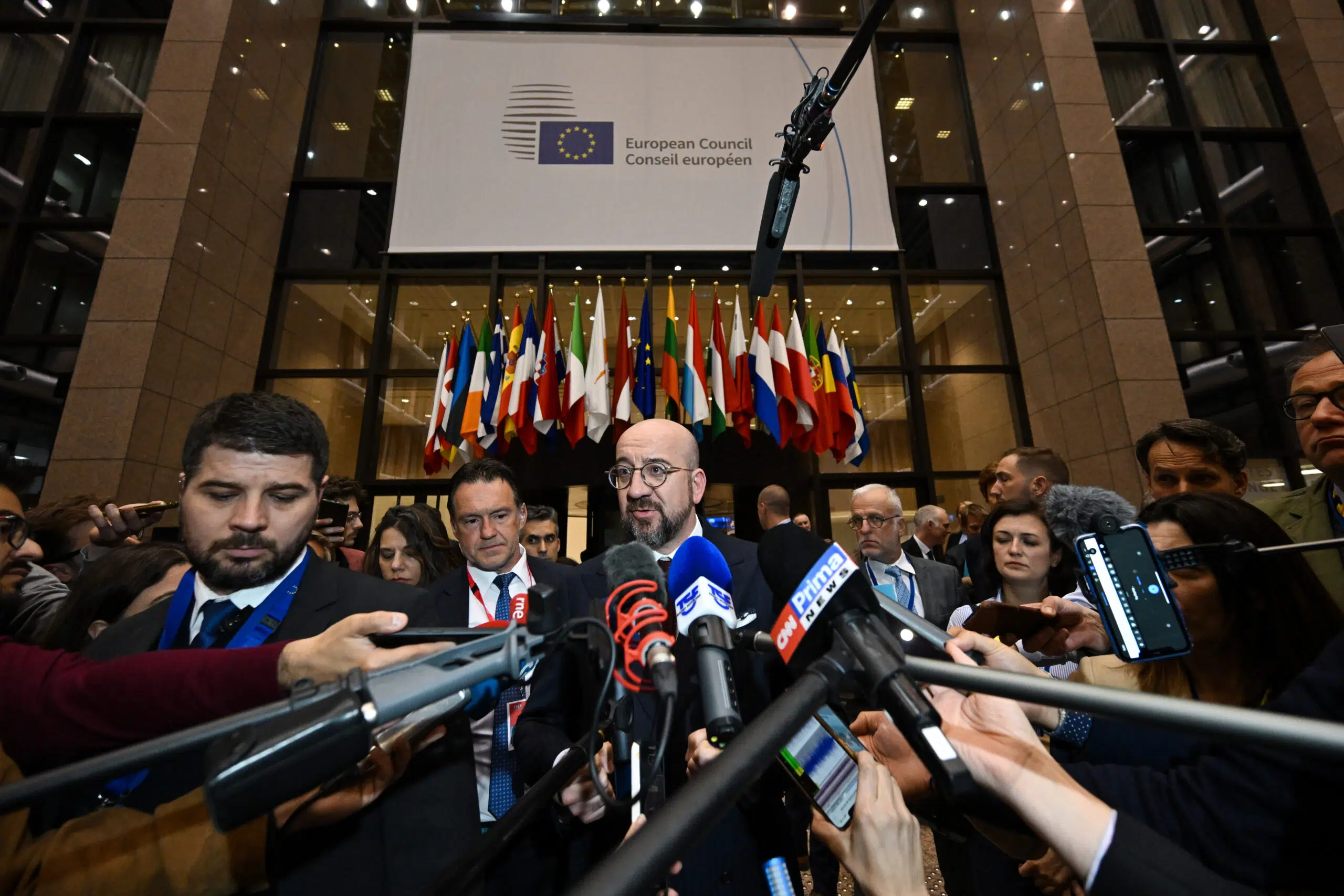Brussels – The hundreds of drones and missiles launched from Iran into Israeli territory in response to the bombing of Tehran’s diplomatic compound in Damascus have channeled energy – and concerns – of EU heads of state and government meeting for the extraordinary European Council meeting in Brussels. Now, the imperative is to avoid, at all costs, escalation between the two regional powers: in the conclusions, the 27 Member States urge “all parties to exercise utmost restraint and refrain from any action that could increase tension” and make it clear they are ready to impose further sanctions on Iran.
The Iranian attack opened a new scenario, bringing the EU bloc to again speak with one voice, something that in the Middle East, since October 7, has always been a challenge. There was no ambiguity in the “Strong and unequivocal condemnation of the Iranian attack on Israel,” with heads of state and government reaffirming “full solidarity with the Israeli people and commitment to Israel’s security and regional stability.”
Against Tehran, guilty of a “disproportionate” response, according to the EU, leaders give the green light to the European External Action Service to propose additional restrictive measures, ” particularly in relation to unmanned aerial vehicles (UAVs) and missiles.” At the end of the summit’s first day, European Council President Charles Michel stressed to the press that “engagement in the region is key. We have to isolate Iran, we place sanctions against Iran, and we work with our partners.”

Not only Iran but also Lebanon, where exchanges of “courtesies” between Hezbollah and the Israeli Defense Forces continue on the southern border with Israel. The 27 recall the “strong support for Lebanon and the Lebanese people and recognize the difficult circumstances Lebanon is going through internally and due to regional tensions.”
Beyond the growing tension between the Jewish state and the regime of Iran’s ayatollahs, however, the epicenter of the conflict remains in Gaza, where Israel, attempting to flush out and eradicate Hamas, has razed much of the Strip and caused more than 33,000 Palestinian casualties. “It is necessary to maintain a high level of attention to the ongoing war in Gaza, where violence is on the rise, and, at the same time, support Israel’s defense against Iran’s attacks,” warned the EU High Representative for Foreign and Security Policy, Josep Borrell, at a press point in Capri, before the start of the second day of the G7 Foreign Ministerial under Italian chairmanship.
In the conclusions of the ongoing summit in Brussels, the European Council “reaffirms its commitment to work with partners to end the crisis in Gaza without delay.” For the first time, the 27 Member States put in black and white that the Israeli siege – which, according to the International Court of Justice, risks presenting some traits of outright genocide – can be stopped “also through reaching an immediate ceasefire and the unconditional release of all hostages.”
Netanyahu’s wall: “I appreciate the advice, but Israel makes decisions on its own.”
Israeli Prime Minister Benjamin Netanyahu indirectly answered the EU’s appeals, telling his Cabinet meeting, “I thank our friends for their support in defense of Israel. They also have all kinds of suggestions and advice, which I appreciate; however, I would like to clarify – we will make our decisions ourselves. The State of Israel will do whatever is necessary to defend itself.”
To reiterate his intention to continue and not bow to the demands of the international community, Netanyahu announced the approval of a new Settler Expansion Plan in the western Negev, with an investment of 19 billion Nis, about 5 billion euros. “Hamas terrorists sought to uproot us. We will uproot them and deepen our roots. We will build the Land of Israel and safeguard our State,” Netanyahu concluded. All this while Borrell, from Capri, insisted that “the EU adopt sanctions against those who have committed violence against Palestinians in the West Bank.”
English version by the Translation Service of Withub







